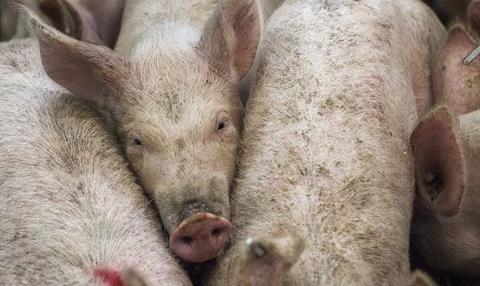Chairman of the National Pig Association (NPA) Rob Mutimer has written to government to demand action to improve the UK’s border controls, in the face of a growing risk of diseases like African swine fever (ASF) reaching the UK.

In his letter, Mutimer pointed out that between January and August 2021, 300,000 Export Health Certificates were required to export British produce to the EU, costing £40 million and taking up over 500,000 hours of veterinary resource.
He wrote: “Yet, identical EU products are permitted to move the other way unhindered and at a lower cost, placing European businesses at a competitive advantage.
“Not only are we deliberately harming our own business interests, we are advertising an open border approach to anyone who would wish to avoid the customs duties, taxes and biosecurity checks which come with trading with a third country.”
Mutimer said that the spread of ASF in Europe, while predominantly spread by wild boar, can also result from the movement of contaminated meat products.
He explained: “If no biosecurity checks are taking place at UK borders to prevent and deter the illegal import of contaminated meats, we are leaving ourselves worryingly vulnerable to a catastrophe.”
While the government awaits the introduction of a new digital trading system, the NPA have requested that the UK borders be “significantly better protected through more robust checks at all points of entry”, including ports, airports and postal hubs.
Defra response
In response to the NPA’s request, a Defra spokesperson said: “We have strict biosecurity controls on the highest risk imports of animals, animal by-products, plants and plant products from the EU.
“EU countries affected by ASF cannot export pork or pork products from affected regions unless in very specific circumstances. We continue to assess the risk of ASF and consider of whether further mitigations are needed, including targeted interventions at the border.”
This story was originally published on a previous version of the Meat Management website and so there may be some missing images and formatting issues.












